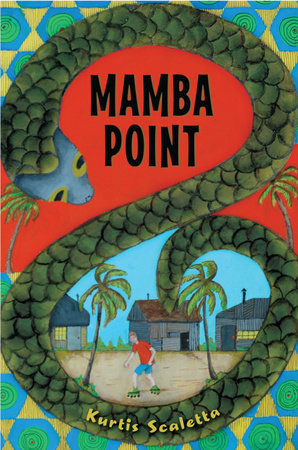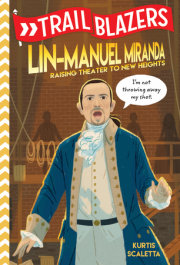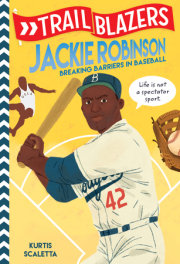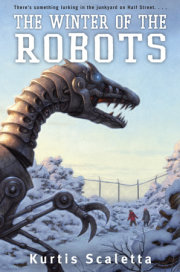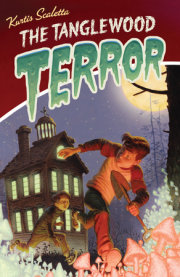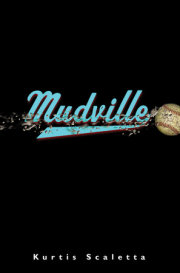My brother changed his name on the plane ride to Africa.
"From now on, my name is Law," he said. "Law Tuttle." He said it to himself a few times, practicing. "Hey, I'm Law. Law Tuttle." He tossed his bangs back with a casual nod as he said it. He'd only recently begun growing his hair out, so he didn't have much to toss.
"I've never heard of anyone called Law," I said, not looking up from my book. I was reading Tarzan of the Apes in comic-book form, which was a going-away present from Joe, my buddy back in Dayton. He wrote on the wrapping paper that it was something to get me ready for the great African experience. If Tarzan was at all accurate, I was in big trouble. According to the comic, Africa was all cannibals and savage apes and hungry lions. I'd read the encyclopedia article, too, though. It said Liberia was founded back in the 1800s by some freed American slaves. They went back to Africa and created their own country. That was why they spoke English in Liberia, and why their flag looked like ours, only with one big star instead of fifty little ones, and why their currency was dollars and cents. There was nothing in the article about ape tribes or cannibals, so those guys must have civilized it by now.
We were moving to Africa because my dad got a job at the American Embassy in Monrovia, Liberia. I didn't know exactly what he'd be doing there, just that he'd be working for two years and then we'd probably move somewhere else.
Dad said it was a big embassy with lots of families and that we'd have plenty of friends. That would be a big change from Dayton, where I had a few pals but not plenty, like they were swarming around me when I left the house. Dad also told us that the embassy compound had a swimming pool and tennis courts and a clubhouse for teenagers and a library with books and videotapes. I wouldn't be able to go to that teen club until I turned thirteen on December 11, but I was looking forward to swimming and the other stuff.
"Law is short for Lawrence," my brother insisted. "It makes more sense than Larry."
"Whatever you say, Law." I made as much noise as I could turning the page. Tarzan was about to do battle with a savage man-eating gorilla, and it was a lot more interesting than Larry making up new names for himself. The gorilla took up most of the next page, its muscles rippling, saliva dripping from its fangs--lots of nice details. I would try and copy it later.
"You could come up with a name, too," Law suggested. "You hate your first name."
"No I don't." I didn't, either. Kids made fun of it sometimes, but it wasn't my name's fault people were jerks.
"Yes you do," he insisted. "How about you go by L.T. or, um, Wheels, since you like skating?"
"No way."
"Fine. Go on being Blanket Boy." His point made, my brother sprawled out and drifted off to sleep, probably dreaming of a better life as Law than he'd had in Ohio as plain old Larry.
My first name is Linus. Most people hear that name and think of the kid in the cartoons who totes a blanket around and never combs his hair. Usually within five seconds of meeting me they ask, "Hey, where's your blanket?" Like no one every thought of that before. So Larry had a point about changing my name, but I didn't think I would.
First of all, even if I had the coolest first name in the world--like Indiana in Raiders of the Lost Ark--my last name would still be Tuttle, which sounds like "Turtle," and kids would skip on to the turtle jokes. "Where's your blanket?" would become "Where's your shell?"
Second of all, it's not necessarily about the name. I knew this kid back in Dayton named Percy Schaefer. Percy is the sort of first name that they ought to not allow by law. The thing was, Percy Schaefer was cool about it. When he said his name was Percy,he said it like it was a great joke and he was in on it. Percy had long hair and wore a denim vest year-round with a bunch of weird patches on it and carried a deck of cards in the vest pocket. If he had five minutes to spare, he'd challenge you to a game of knock rummy--he'd play you penny-a-point and win, but then he'd take the whole pocket of change down to the arcade and treat you to video games. Percy was one of the coolest kids in Dayton, and after a while you felt like you could have been cool, too, if only your name was Percy instead of Larry or Linus or Joe. So maybe the name wasn't really the problem. Maybe it was me.
Copyright © 2010 by Kurtis Scaletta. All rights reserved. No part of this excerpt may be reproduced or reprinted without permission in writing from the publisher.

